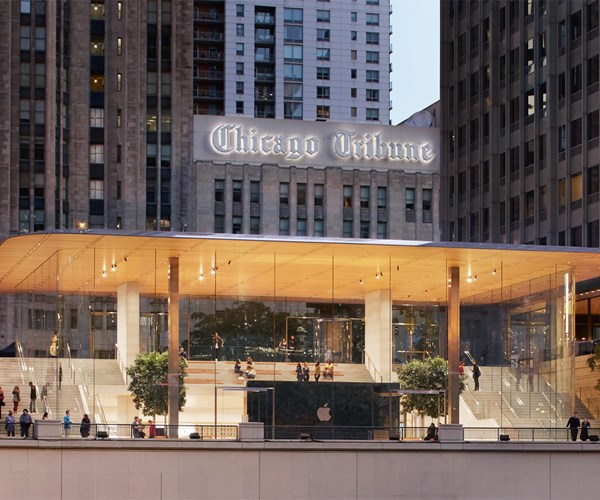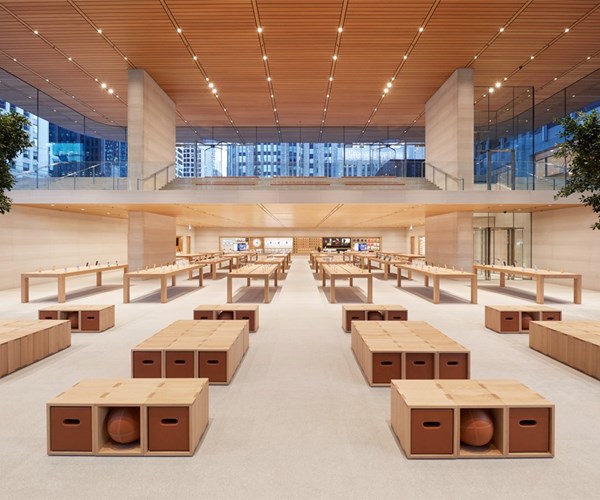Apple Store in Chicago features massive carbon fiber roof
The 111-by-98-ft carbon fiber composite roof is one of the largest single architectural structures in the world.

Carbon fiber roof on new Apple Michigan Avenue store, Chicago.
Apple on Oct. 20 opened its Apple Michigan Avenue store in Chicago, IL, US, located on North Michigan Avenue at the Chicago River. The store, mostly subterranean, features a massive carbon fiber roof supported by four interior pillars, and a 32-ft ground-to-ceiling, all-glass facade.
The roof, which measures 111 by 98 ft, was manufactured by Premier Composite Technologies (PCT, Dubai, UAE). Neither PCT nor Apple would provide additional information about the roof except, according to Apple, that it was “designed to be as thin as possible.”
“When Apple opened on North Michigan Avenue in 2003, it was our first flagship store, and now we are back in Chicago opening the first in a new generation of Apple’s most significant worldwide retail locations,” says Angela Ahrendts, Apple’s senior vice president of retail. “Apple Michigan Avenue exemplifies our new vision where everyone is welcome to experience all of our incredible products, services and inspiring educational programs in the heart of their city. We can’t wait to welcome the community for opening weekend, and to launch ‘The Chicago Series’ with our incredible local partners on Monday.”

32-ft glass facade on the Apple Michigan Avenue store, made possible by a lightweight carbon fiber roof supported by four interior columns.
“Apple Michigan Avenue is about removing boundaries between inside and outside, reviving important urban connections within the city,” says Jony Ive, Apple’s chief design officer. “It unites a historic city plaza that had been cut off from the water, giving Chicago a dynamic new arena that flows effortlessly down to the river.”
Apple’s original North Michigan Avenue store opened in 2003, has seen 23 million visitors since it opened, and employs a team of 250.

Interior of Apple Michigan Avenue store, Chicago.
Related Content
-
Renco USA brings Lego-style composite building system to construction
After more than a decade dedicated to R&D, evaluation and testing, the company has proven its MCFR building system in a Lakewood Village project in Florida.
-
Sustainable Infrastructure Systems creates fiber-reinforced post-consumer plastic structural panels
Australian composites manufacturer offers a scalable building solution, already established in a pedestrian bridge application, to tackle unprocessed soft plastics waste.
-
Swedish parking garage to incorporate decommissioned wind blades
Architect Jonas Lloyd is working with Vattenfall to design the multistory building with a wind blade façade, targeting eco-friendly buildings and creative ways to remove blades from landfills.
















